Angela Merkel: The world's great political survivor
The German chancellor has seen many other leaders come and go.
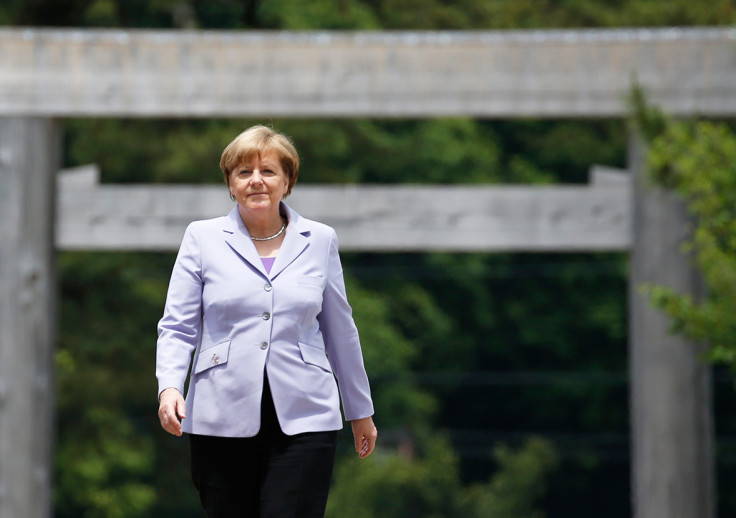
World leaders come and go. Some can go down as heroes, others as a disaster. But no matter how successful their tenure is, the only surety is that their time will come to an end.
Angela Merkel is just days away from an expected fourth victory at the polls, which would make her one of Germany's longest-ever serving leaders. Her longevity as German chancellor means that she has seen a flurry of leaders fall by the wayside in Europe, the US and across the world.
Her 12 years in power already places her as the third longest-serving chancellor in the modern German era. She is also currently the longest serving leader in the G8, EU and the Western world.
Each world leader faces new and unique challenges. Some are better than others at playing the complex game of diplomacy needed to become and remain a world leader. And Merkel is a grandmaster.
During her time in power, Merkel has seen three US presidents and four UK prime ministers, and all relationships have provided staunch allies, controversy or friendship.
The United Kingdom
When Merkel first came to power, Prime Minister Tony Blair was eight years into his job and fresh from a third successive electoral victory. The pair had a warm relationship, with Merkel calling for the UK to take a greater role in Europe and end the Franco-German dominance of the continent. Two years later, Blair had resigned.
Much of Gordon Brown's three-year tenure as PM saw him dealing with the global financial crisis that had hit Europe hard. Merkel and Brown differed in their views over how best to tackle the crisis but eventually managed to strike up an accord. By the time this happened, Brown was a year away from exiting Downing Street.
None of the Blair-Brown years came close to the rollercoaster ride that their successor endured.
Much of the UK's political relationship with Merkel is summed up by her's with David Cameron. The pair were leaders together for six years, and over that period had a tempestuous time. The very first world leader that Cameron visited in 2010 was Merkel, but veiled threats about leaving the EU had already knocked things out of kilter.
And despite pledges to work together, Cameron, under pressure from small minority of his own party turned to Merkel to help him reach a better deal between Britain and the EU. This was taking time. Merkel had her own election to deal with in 2013. And a year later, their partnership turned sour.
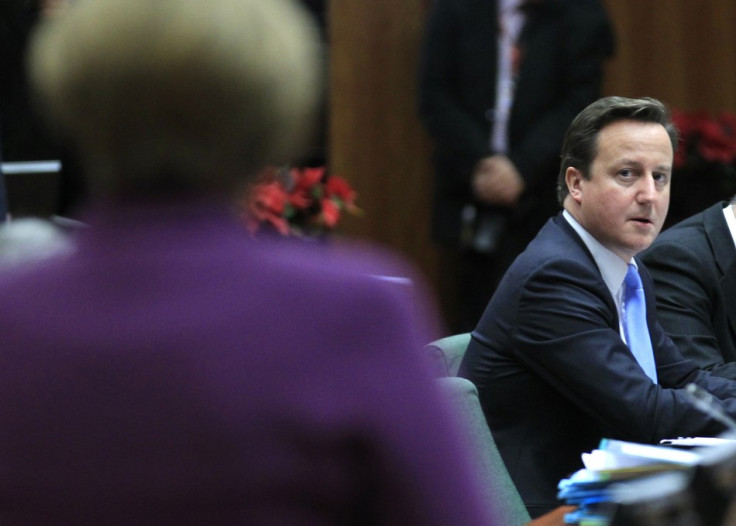
Cameron campaigned hard to prevent the former Luxembourg prime minister, Jean-Claude Juncker, from being elected as president of the EU Commission. He initially appeared to have won Merkel over, which was vital.
But at the last minute, Merkel performed an uncharacteristic U-turn and backed Juncker. Her decision convinced others to follow suit. Merkel addressed a rare joint session of the House of Commons and Lords in which she said that those hoping for sweeping EU changes were "in for disappointment".
Despite reaching a deal with the EU, it wasn't enough, Cameron's gamble of an in-out referendum backfired and as Britain hurtled towards a European exit. Cameron's time as PM was also over. Theresa May was forced to pick up where Cameron left off, and after a disastrous snap election that was meant to "strengthen her hand", the British PM has been sidelined by the EU and Merkel.
The United States
Merkel's predecessor, Gerhard Schröder, had a stormy relationship with George W Bush. The pair bitterly fell out over the Iraq war.
But when Merkel became chancellor in 2005, things were generally smoother. Germany's active engagement in Afghanistan and a firm stance on Iran's nuclear programme saw the pair from a cordial relationship.
One notable gaffe from Bush did cause a stir when the US leader attempted to give Merkel a backrub.
It was at the 2006 G8 Summit in St Petersburg that Bush, in front of all the cameras, walked towards Merkel, who was sat down at the leaders' table, placed his hands on her shoulders and squeezed them.
This provoked an obvious grimace from the chancellor who then raised her arms to stop the president in what was a bizarre moment in their friendship.
But as friendships go, it was with Bush's successor that the US-German relationship blossomed.
Barack Obama's election beckoned a new era for Washington and a fresh start for relations with Berlin. The partnership over eight years got off to a rocky start when Merkel refused to allow Obama to make a speech in front of the Brandenburg Gate in Berlin while he was campaigning to be president in 2008.
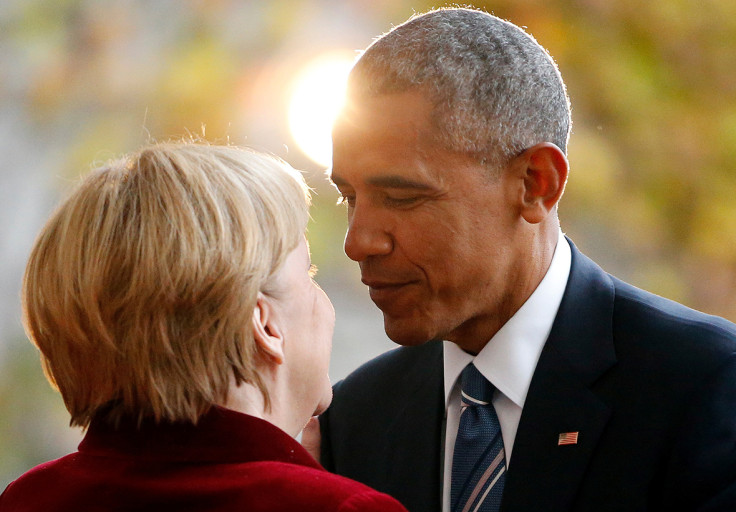
But once he was elected, the pair soon became good working partners, despite initial differences on how best to deal with the economic crisis. The pair worked well with their similarly pragmatic and analytical styles.
Halfway through their time as world leaders together, a hammer blow came when it was revealed that the US had spied on officials in Berlin and had even monitored Merkel's personal mobile phone. Merkel angrily responded saying that "spying among friends is never acceptable".
But determination between the two meant that the pair could move on to focus on new issues facing the world. Together they took a strong stance against Vladimir Putin after Russia's annexation of Crimea and the pair also agreed on helping migrants displaced from the Middle East.
As Obama prepared to leave office he said that Merkel was "probably... my closest international partner these last eight years." Notably, Obama's final international phone call as president was made to Merkel.
What came afterwards was a radical change.
Donald Trump's bombastic arrival at the White House immediately caused a stir at the chancellery.
Trump's criticisms of Nato, the EU and the Paris Climate Accord placed his administration at odds with the values and ideals of Merkel. During the election campaign, Trump called Merkel "fantastic" and "highly respected" but then questioned her migration policies, describing them as "insane".
Verbal sparring has often been how the pair have communicated. Upon Trump's election victory, Merkel issued a sharply worded statement reminding him about democracy and the rule of law. Her disappointment was more than clear after he pulled out of the Paris climate agreement, a move which she called "regrettable".
It was after this exit and the start of Brexit that Merkel said that the EU could no longer completely rely on Britain and the US. An awkward handshake, or lack of handshake, seemed to sum up the early days of their relationship.
The pair will be an important duo to watch, because if Merkel is victorious, Trump will have to deal with her long after he faces re-election.
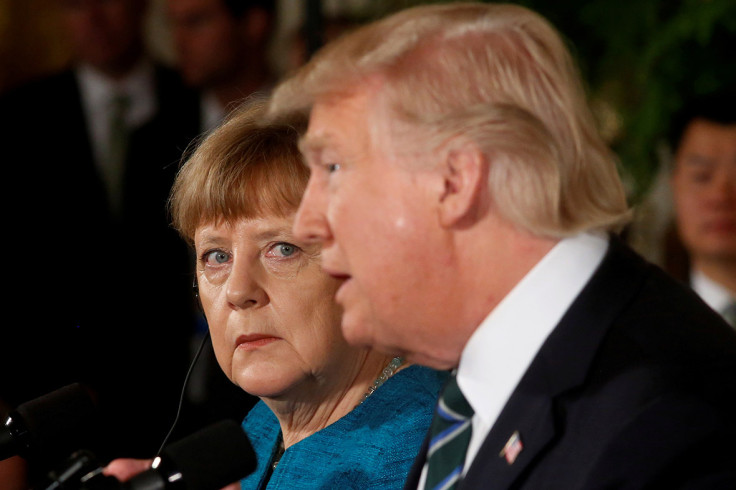
The rest
Those two nations have highlighted the complex house of cards that world leaders face when they try to work together. In Europe, her four French presidents have had very different experiences with Merkel. With Nicolas Sarkozy, the pair started off as allies but eventually grew tired of each other.
With the incumbent Emmanuel Macron, the two have spent plenty of time together since the young Frenchman was elected earlier this year. He is keen for greater EU integration, as is Merkel, but domestic issues in France could create problems.
One unique relationship that Merkel has had is with Vladimir Putin.
While in East Germany, Merkel learnt perfect Russian. And Putin, who was based in Germany as a KGB officer, speaks perfect German. It is thought that this East German connection between the two has produced a unique relationship replicated with no other world leaders.
Merkel herself will eventually either step down or be voted out of power. But until then, expect the merry-go-round of world leaders to continue, with Angela Merkel the one constant that binds together global politics.
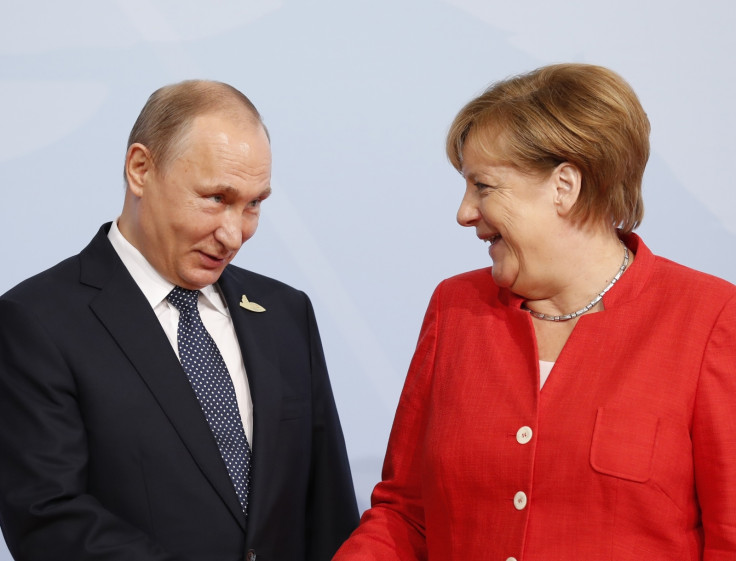
© Copyright IBTimes 2025. All rights reserved.






















